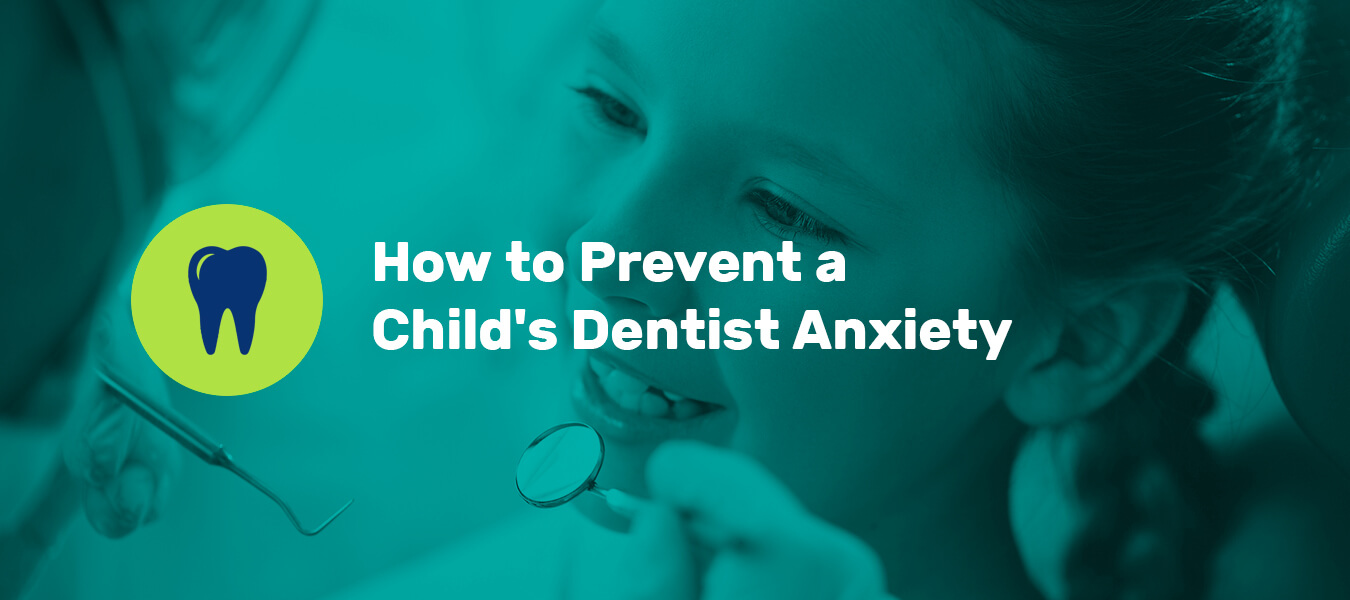Children commonly experience fear and stress surrounding doctor’s appointments and seeing the dentist is often triggering. Many adult patients also struggle with this problem, but with children, psychological stressors are often more overwhelming.
Keep reading to learn how to make your child’s pediatric dentist appointment a positive experience.
Why Do Children Have Dental Anxiety?
Consider why your child is afraid of the dentist — they are young and unsure of what’s going on, and patients with dental anxiety experience intense fear and dread related to the dentist’s office. Some may have panic attacks before or during a procedure.
Your child can have a panic attack from feeling unsafe in anticipation of potential danger. A panic attack triggers the body’s sympathetic nervous system to engage in an involuntary fight-or-flight response. This can result in your child having an elevated heart rate, sweating, chills, verbal outbursts and, in severe cases, difficulty breathing.
If your child has dental anxiety, the thought of needing a procedure can cause an emotional response that is difficult to control. Managing these symptoms can become more difficult if they are allowed to progress into adolescence. Managing dental anxiety — called dentophobia — in children is easier to address than when it has continued into adulthood.
According to some clinical studies, negative experiences with dental visits can lead to dental anxiety. Since children might also model their family’s attitudes toward treatment, it’s important to have a good attitude about getting care.
Common Reasons for Children’s Dental Anxiety
You can help your child overcome these negative feelings about dental care with an empathetic attitude and positive reinforcement. Common fears that result in dental anxiety include:
1. Fear of Humiliation or Embarrassment
Your child might feel self-conscious about having tooth decay or a dental deformity. If your child has experienced bullying related to the way their teeth look, this fear could be more acute.
2. Fear of Injections
Your child might be afraid of the pain associated with getting a shot or a local anesthetic. Because your child is unaware of what will happen during the procedure, they might get anxious before a teeth cleaning or another common treatment without needles. Dentists learn techniques for delivering injections as painlessly as possible.
3. Fear of Pain
Your child might be afraid that the dental treatment will be painful. This fear can develop from hearing other children or adults talk about scary moments during their dental procedures. Your child might also be afraid of experiencing pain after a bad experience. Pediatric dental professionals are used to treating patients with anxiety and try to make young patients feel comfortable during treatment.
4. Fear of Losing Control
Feeling trapped in a dental chair while an unfamiliar adult uses tools inside your child’s mouth can trigger anxiety. Part of this fear stems from the feeling that your child is unable to clearly communicate if something starts to overwhelm them. You can be present during certain treatments if this will alleviate the anxiety. Dentists try to combat this fear by letting the patient communicate with a hand signal when something becomes overwhelming.
5. Fear of Anesthesia
Although anesthesia is used to make a procedure comfortable, your child might be afraid of getting put to sleep or being unaware of and unable to remember what happened. Your child might also dislike the mask that delivers anesthesia.
6. Fear of Obstructed Breathing
Your child has to hold the mouth open for a long time during dental work. This position could make breathing a little more difficult than usual, especially for those who breathe through the mouth. If your child has asthma, this position could be a reminder of an unpleasant asthma attack, stirring anxiety. Dental staff can distract your child from this fear with a television program to make the procedure less scary.
7. Unexplained Fears
Pinpointing a specific fear can be difficult with a child. Anxiety can result from sensory challenges or a stressor that the child is unable or unwilling to articulate. Your child might be anxious because they don’t understand why they need the procedure or what good it would do for them.
How Can I Calm My Child’s Anxiety From the Dentist?
Like many parents of children who experience this problem, you want to help calm your child during dental exams and procedures. Try the following ways to alleviate their anxiety and make your child comfortable:
- Bring a comfort item: Your child can hold a fidget toy, stuffed toy or blanket for comfort during the procedure.
- Provide a distraction from home: Let your child play on a phone, video game system or tablet in the waiting room. You can also ask if your child can listen to music during the procedure.
- Encourage relaxation techniques: Learning to curb anxiety is a valuable skill for later in life, whether your child starts practicing meditation or deep breathing exercises.
- Use positive reinforcement: Offer a reward for the successful completion of a visit.
- Be present: You can help your child feel secure by reminding them of your presence.
- Choose your words carefully: Avoid using terms like “pain” or “needle” when talking to your child about an upcoming dental appointment. Use positive language when referring to the dentist.
- Speak honestly to your child: Although you want to make sure your child feels secure, you also want to make sure they are aware of what’s happening around them. Avoid lying to your child about where you’re going when it’s time to visit the dentist.
- Be strong: Some parents will cave in when their child is in distress, leading to delayed care and repeated patterns of behavior. Set a good example by bringing your child to the appointment and keeping a positive attitude. You can also show you care through verbal affirmations and praise.
- Avoid delaying dental care: Missing an appointment may seem like the least emotionally painful resolution, but the longer your child goes without care, the more problems could develop or progress. Delayed care could lead to your child needing more extensive treatment later.
- Communicate with your child’s dental team: Tell the staff at your dental office if your child had a past negative experience or if certain triggers make the anxiety worse. Keep your dentist informed about how your child feels so staff knows how to best gauge your child’s limits.
Make an Appointment With Sprout Pediatric Dentistry and Orthodontics
Dental anxiety is a very common challenge for pediatric patients and adult patients alike. Our well-trained, empathetic staff works with kids and adults, following the best practices for managing patients’ fears. Contact us to learn more or schedule a consultation today.

Dr. Dana grew up in Portland and went to Temple University in Philadelphia, PA for dental school. She then moved to Anchorage, AK for her residency in Pediatric Dentistry. Dr. Dana takes a holistic approach to pediatric dentistry & is able to use her own parenting experience to sympathize and understand each family’s unique dynamic.



